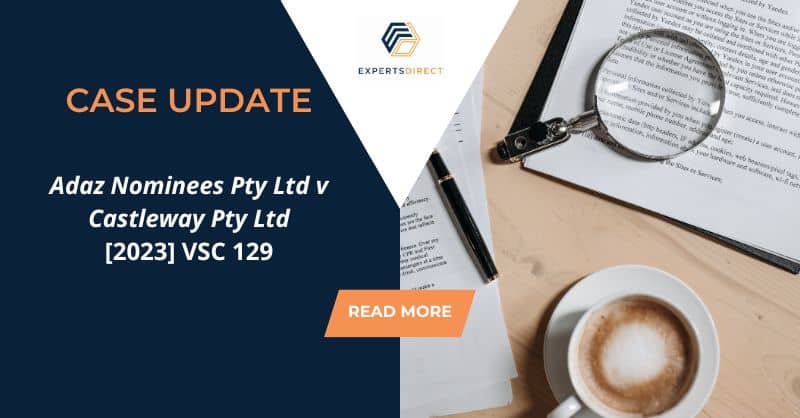Background
In this case, the court had to decide whether a determination made by a nominated accountant constituted an expert determination for the purposes of a commercial contract between the parties.
This was a dispute between Mr Keeghan and a company related to his interests, Castleway Pty Ltd (Castleway), and a group of companies collectively described as the TPC Group. Castleway, Mr Keeghan, and the TPC Group entered into a written Property Development Services Agreement (PDSA), pursuant to which Castleway would provide property development services to the TPC Group. Mr Keeghan was appointed as Chief Executive Officer of the TPC Group and the terms of Mr Keeghan’s employment, including his remuneration, were regulated by the PDSA.
The PDSA also provided that Castleway would be paid an annual service fee for the provision of the property development services, to be calculated as a sliding percentage of the profit of the TPC Group, with a termination adjustment to be made in the final year of the term of the PDSA (the ASF). In addition to the ASF, Castleway was entitled to a commission on projects it, or Mr Keeghan, introduced to the TPC Group.
The calculation of the ASF was to be undertaken by an accountant nominated by the TPC Group, Mr T. The parties had been in dispute about various matters under the PDSA, including the calculation of the ASF, since 2012.
Clause 9.1 required that the dispute resolution procedures set out in the PDSA be complied with before the commencement of any action or proceedings by either party. Disputes which were unresolved within 15 days after receipt of a dispute notice could be referred to an independent expert for binding determination.
The role of the expert third party determination
TPC Group submitted that the role of the nominated accountant was akin to that of an expert third party determination, and that the parties were bound by the determination of the nominated accountant if it could be shown that his determination answered the contractual description of what the expert third party was required to determine in the event of a dispute.
Castleway argued that the Service Fee Report prepared by Mr T in connection with the proceedings, did not serve the role of an expert determination for the purposes of the dispute resolution procedure set out in the PDSA.
The court’s findings
Niall JA found that the calculations of the nominated accountant did not enjoy any privileged position and was not an expert determination as contemplated by the PDSA. [135] However, the Court found that the starting point for both the ASF and the calculations of the expert were the same; that is, the income tax as per the TPG Group tax returns. Thus, it followed that there is no scope for either the nominated accountant or the independent expert to change the figures in the tax return. [136]
In interpreting the PDSA, the Court ruled that for the purposes of both the work of the nominated accountant and of the expert when making a determination under cl 9, the aim was to ensure the ASF was calculated having regard to accepted taxation and accounting practice. The PDSA provided that, having regard to the accounts and the exercise of professional judgment, the correct figure would be arrived at after making the necessary adjustments. The ability to inspect and audit the accounts and to obtain a binding expert determination was contrary to the assertion that the calculation of the nominated accountant had any dispositive force in the dispute resolution process. [138]
Niall JA went on to say that court action was available to protect contractual rights under the PDSA, but that did not translate into a provision that would have the court determine what the ASF should have been on the evidence before it. In doing so, the Court was not elevating the determination of the nominated accountant to the status of a determination of an independent expert. Rather, the Court recognised that Castleway’s entitlements were to be calculated in a certain way by the nominated accountant and in the event of a dispute, subject to a binding determination by an independent expert pursuant to the provisions of the PDSA. The PDSA did not contemplate that the entitlement to be paid would equate to what a court might find should be the Service Fee, on the evidence before it. [140-141]
Key takeaways
- Dispute resolution procedures in a contract may contemplate that the third-party expert, and not the Court, will determine the question in dispute between the parties.
- The use of expert determinations to resolve contractual disputes between parties can be an informal, speedy and efficient mode of dispute resolution. The fact that the expert determination process was contemplated in the contract undermined the argument that the nominated accountant’s determination could be elevated to the status of an expert determination.
- In this case, the determination of a party appointed third party did not constitute a third-party expert determination for the purposes of the PDSA.
Read the full decision here.
